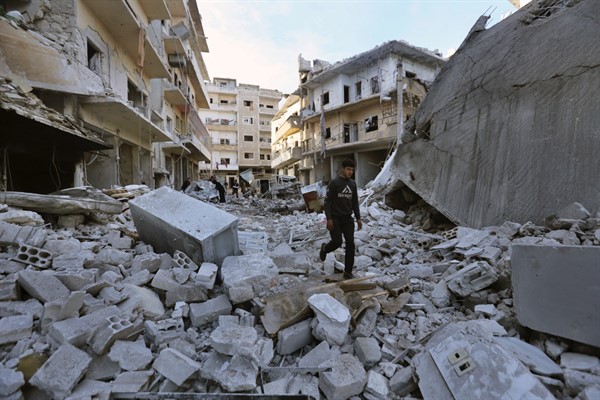Normalization of diplomatic ties with Syrian President Bashar al-Assad raises troubling questions for humanists who are also realists. When an evil regime wins a bloody war that allows it stay in power, how can a liberal-democratic state express solidarity for victims of that regime's brutality without engaging in fantasy politics?
By fantasy politics, I mean pursuing policies that continue a lost war through punitive acts that do little to limit the targeted regime’s capabilities, while hurting the innocent civilians those penalties are ostensibly intended to help; or pretending that the losing side of a conflict has leverage to pursue its objectives, when in fact it does not.
There are plenty of examples throughout history of this kind of fantasy politics in the Middle East, including the decades of rupture between the U.S. and Iran following the 1979 revolution and the sanctions against Iraq in the 1990s. Today, the most prominent example is the argument that diplomatically isolating Damascus, including through economic sanctions, will change Assad’s behavior after a decade of war didn’t.

